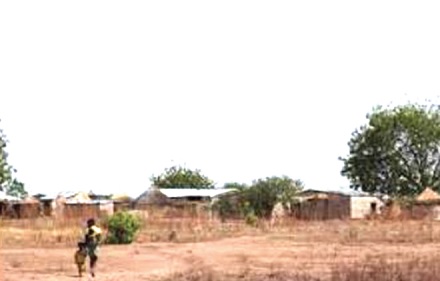
Imperative to adapt: Navigating climate change in Northern Region
Climate change is no longer a distant threat but a stark reality affecting communities worldwide.
In the Northern Region of Ghana, the impacts of climate change are felt acutely, posing challenges to livelihoods, agriculture, and overall community well-being.
This article delves into the urgent need for adaptation strategies tailored to the unique circumstances of the Northern Region of Ghana.
Changing climate patterns
The Northern Region, known for its distinctive landscapes and agrarian communities, is witnessing shifts in climate patterns that are disrupting traditional ways of life.
Erratic rainfall, prolonged droughts, and unpredictable weather events have become commonplace, threatening the very foundation of the region's socio-economic fabric.
It is imperative that we recognise the need to adapt to these changes to secure a sustainable future for the Northern Region.
Preserving agricultural livelihoods
Agriculture has been the lifeblood of the Northern Region for generations, providing sustenance and income for countless families.
However, the changing climate poses a significant threat to crop yields and food security.
To safeguard against these challenges, farmers in the Northern Region are adopting climate-smart agricultural practices.
Diversification of crops, soil conservation techniques, and the incorporation of resilient crop varieties are becoming essential components of a strategy to adapt and thrive in the face of climate uncertainty.
Water scarcity is a growing concern in the Northern Region due to irregular rainfall patterns.
To address this challenge, communities are focusing on innovative water management and conservation initiatives.
Small-scale irrigation systems, rainwater harvesting, and the construction of water storage infrastructure are becoming crucial components of adapting to the changing climate.
By harnessing water resources efficiently, communities in the Northern Region of Ghana can enhance agricultural productivity and resilience.
Renewable energy transition
As the world grapples with the consequences of fossil fuel reliance, the Northern Region is recognising the need for a transition towards renewable energy sources.
Solar power, in particular, holds immense potential to address energy needs sustainably in Ghana and especially in the Northern Region.
Embracing solar technology not only reduces carbon emissions but also ensures a reliable and clean energy source, promoting resilience against the adverse impacts of climate change.
Community empowerment, education
Adaptation requires a collective effort, and community empowerment plays a pivotal role.
Educating the residents of the Northern Region on the impacts of climate change and providing them with the knowledge and tools to adapt are fundamental steps in building resilience.
Workshops, training programmes, and awareness campaigns are essential components of fostering a community that is prepared and capable of facing the challenges posed by climate change.
Conclusion
The need to adapt to the impact of climate change in the Northern Region is not merely a choice but a necessity for survival and sustainable development.
Through a concerted effort to preserve agricultural livelihoods, manage water resources wisely, transition to renewable energy, and empower communities with knowledge, the Northern Region can navigate the challenges posed by climate change.
It is time for all stakeholders, including governments, non-governmental organizations, and communities, to collaborate in forging a resilient path forward, one that ensures the well-being and prosperity of the Northern Region for generations to come.
The writer is a PhD Student,
University for Development Studies,
Tamale, N/R.
E-mail:
